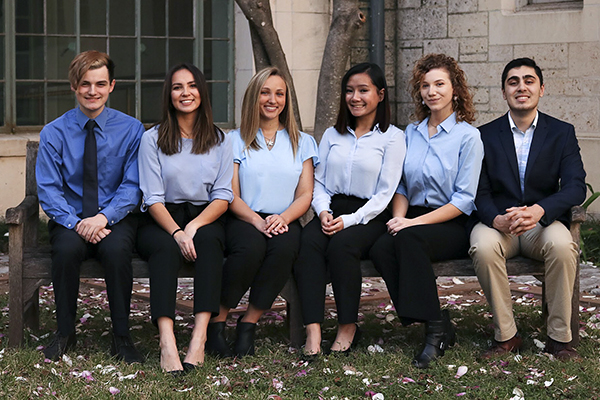Members of the new organization Texas Brain Exercise Initiative began volunteering last month with people diagnosed with Alzheimer’s disease at a senior living community near campus, Brookdale Westlake Hills.
The 74 members utilize activities meant to stimulate the brain’s prefrontal cortex, which controls higher cognitive functions such as memory and verbal ability.
According to Alzheimer’s Disease International, 46 million people worldwide are affected by Alzheimer’s and dementia-related diseases. Thao Le, president of the initiative, said her grandmother’s diagnosis inspired her to pursue a capstone project in high school to research treatments for Alzheimer’s. Her research eventually led her to the Brain Exercise Initiative.
“We often view Alzheimer’s as something that is incurable, untreatable,” said Le, a biology and neuroscience sophomore. “There’s no medication for it. But from research that has been shown over in Japan, there are preventative measures that can be done to help alleviate this disease. If there’s any sort of way to help it, by all means, we should go ahead.”
The brain exercises, developed by neuroscientist Dr. Ryuta Kawashima, are broken down into three components: math, writing and reading.
First, Le said residents are challenged to complete simple math problems quickly and without worrying about accuracy.
“If you go through it slowly and actually take your time, it works a different part of the brain,” volunteer Nathan Hardham said.
Hardham, a chemical engineering freshman, said the residents then rewrite questions without answering them and practice reading aloud.
The exercises are followed with opportunities for volunteers to catch up and bond with the residents.
“It’s more clinical than just volunteering or hanging out with the elderly,” Hardham said. “At the same time, we’re still working on maintaining a good connection with them.”
Samantha Lazenby, resident programs coordinator at Brookdale Westlake, said while some residents were apprehensive about participating in the program, the reception so far has been positive overall.
“Some of them were really excited because they want to keep their brain healthy as long as they can,” Lazenby said.
Lazenby said the facility wants to see how the program works with all different levels of cognitive ability and potentially get other Brookdale locations involved in the future.
“The intergenerational engagement for residents is just invaluable,” Lazenby said. “They love getting to hear what young people are up to and they love hearing stories, so it benefits the residents just as much as it benefits student engagement.”




















